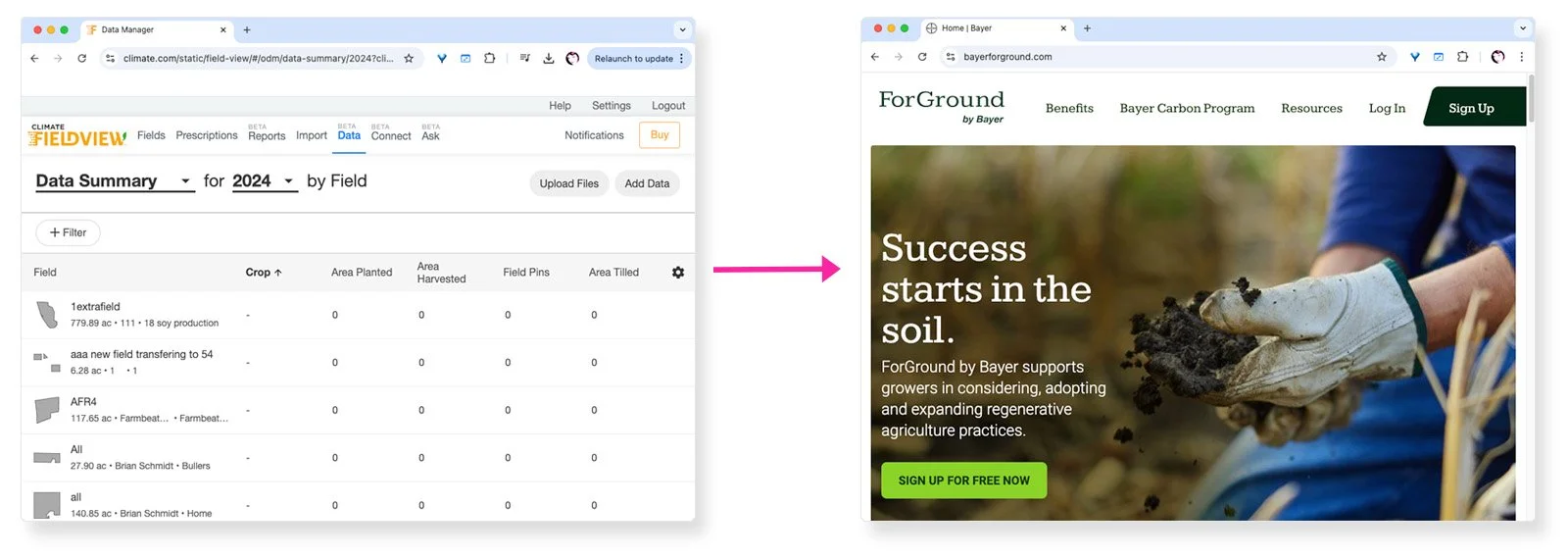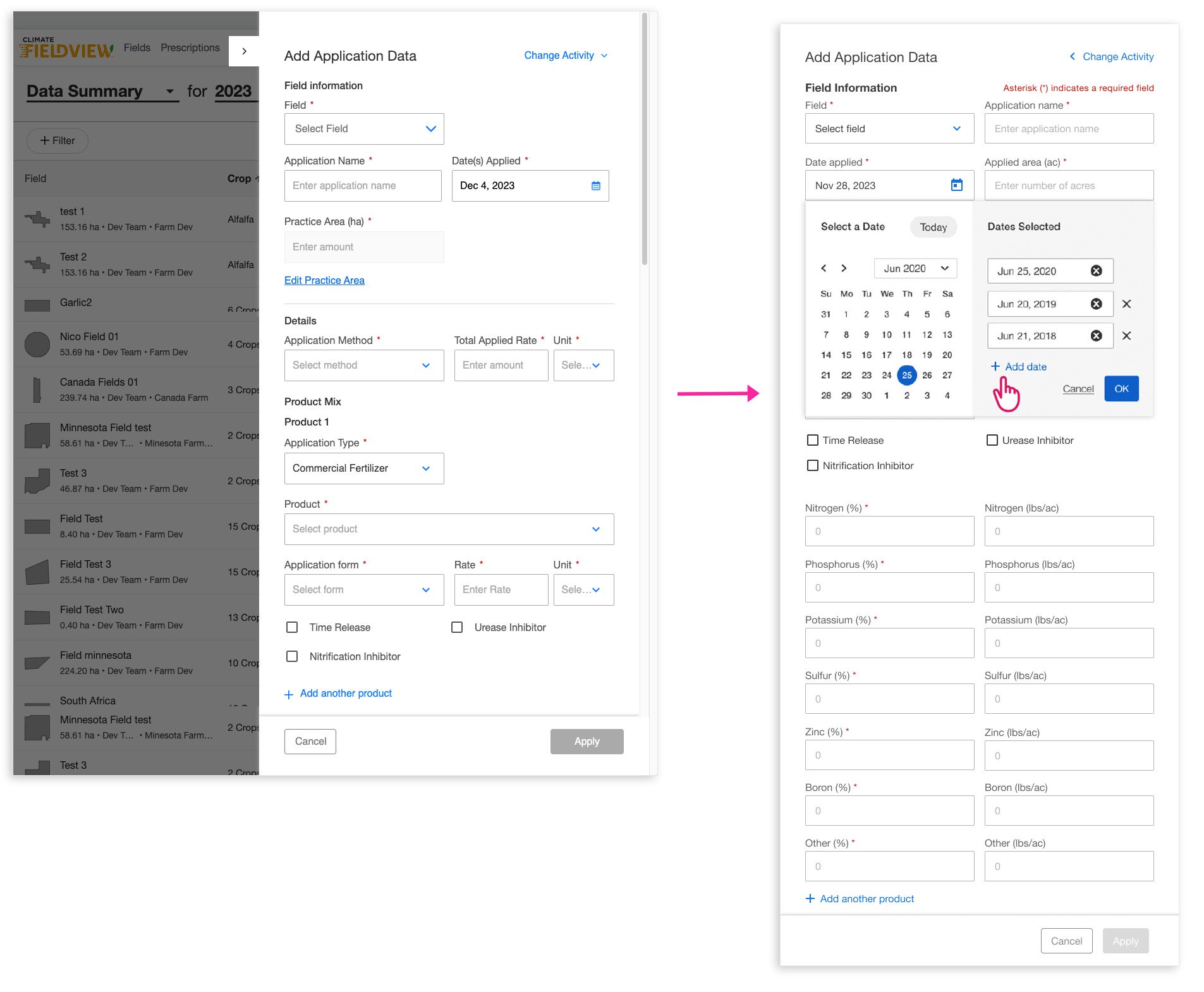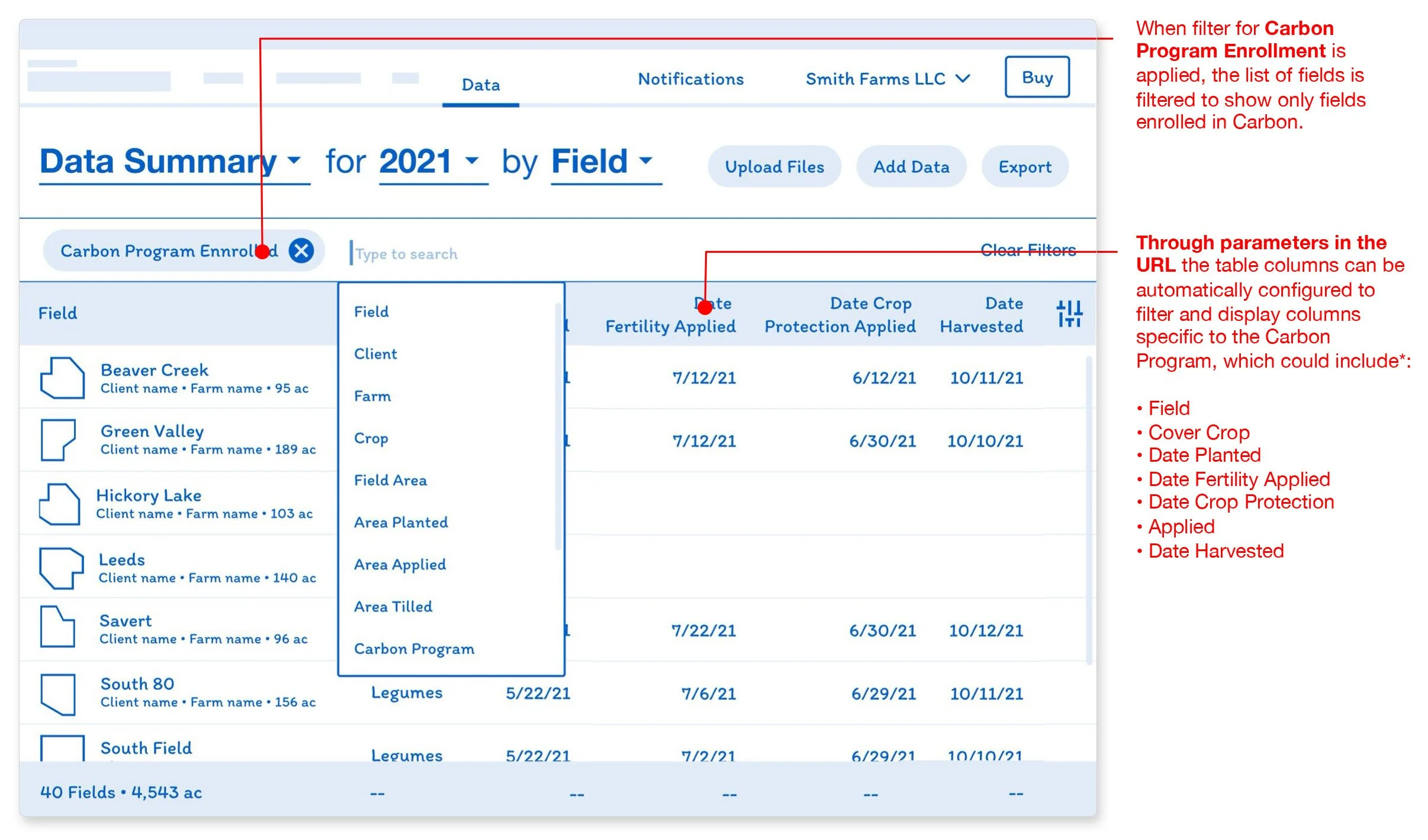Case Study 2
Climate FieldView: Data Manager, Phase 2
The Data Manager feature in Climate FieldView needed additional functionality to align with the data requirements of the Bayer Carbon Program, enabling users to earn incentives for implementing sustainable farming practices.
Problem and Opportunity
Bayer ForGround is a platform that is powered by data collected by Climate FieldView. To participate in its Carbon Program and earn incentives for adopting sustainable farm practices, users must first link their Climate FieldView account in order to sync their data. But first, Data Manager, a powerful feature within Climate FieldView, needed updates to accommodate the very specific data required by the Carbon Program.
Our high-level goals were to:
● Make it fast and easy to use for everyone, everywhere.
● Give users more control over their data.
● Create integration between platforms and enable customers to earn incentives.
Users
The Carbon Program is currently available to farmers in the U.S. whose operations are located in one of the 28 eligible states and produce any of the 12 eligible crops. To enroll, users first need to link their Climate FieldView account, or sign up if they don’t already have one.
Roles
As the lead designer for the Data Manager feature, I collaborated over several months with the product managers, subject matter experts, and stakeholders in order to research, plan, and execute the new designs. I also oversaw the design of the ForGround platform to ensure brand alignment. For the design concept testing with users, I scheduled the test participants, and created the test materials, including discussion guide. Also coordinated with the development team to ensure feasibility and optimal execution of the feature updates.
Solution
On a farm visit to meet with customers and watch our product in action. (Yep, that’s me, standing next to a very expensive piece of equipment that we got to drive!)
To align with the Carbon Program’s data requirements, the Data Manager feature needed the following updates:
● Add the ability to manually enter data for multiple activities on multiple dates, for a single field or multiple fields.
● Redesign the date picker functionality, so that users can select multiple dates for a given event, and enter the corresponding data for each event.
● Update the Applications side panel, to add inputs for the required new data. However, because Climate FieldView customers were already using the Data Manager feature, we needed to ensure that their workflows would not be negatively impacted by these changes.
Process
● Collaborated with product managers throughout the design process, which included wireframe iterations, concept testing materials, and final high fidelity designs.
● Revised Data Manager to accommodate the specific and complex requirements needed for the Carbon Program. These requirements changed as the Carbon Program developed, so there were numerous iterations before we arrived at the final designs.
● Conducted design concept testing to gauge users’ reactions to new designs for sections of Data Manager that they were already using. We needed to ensure—before building—that there would not be a negative impact for our users.
● Created high fidelity designs in partnership with visual designer.
● Collaborated with developers to ensure accurate execution of design updates and new design system components.
Outcome
This iteration of Data Manager was well received by the Carbon Program team, and our users. These updates supported Bayer’s Carbon Program, its new potential revenue streams, and increased payment potential for thousands of U.S. farmers who choose to implement regenerative agriculture practices. The Bayer Carbon Program has received positive reviews for being the most transparent and one of the easiest to understand as compared to other carbon markets, and Climate FieldView as a powerful digital ag platform that allows participants to check their progress.
A key learning from this project was the importance of being able to pivot quickly, prioritize, and problem solve while the project evolved. Even though there was much planning, ultimately flexibility and agility were what kept us on track for success.







